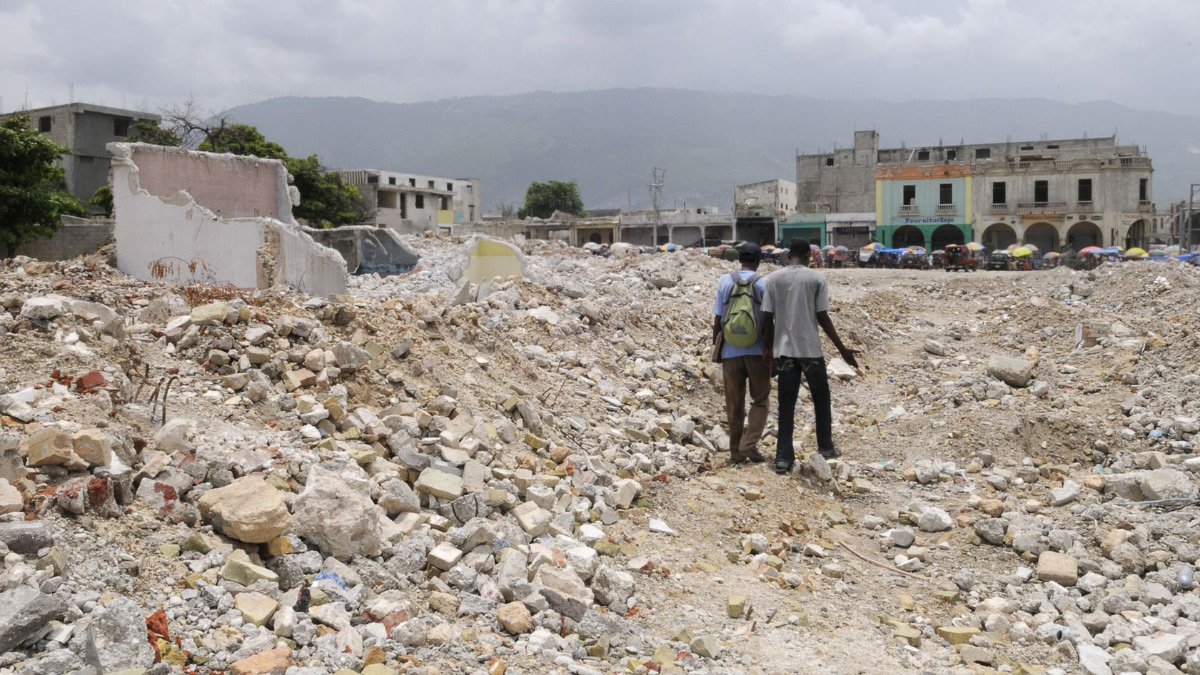The earthquakes that ravaged the homes and cities of Haiti earlier this year have elicited interventions by numerous foreign governments. Government efforts in the post-disaster context aim to administer aid to the suffering and restore or create stability of core political institutions. When considering the efficacy of government emergency aid efforts, it is wise to remember the recent experience of Hurricane Katrina. The dismal response of the Federal Emergency Management Agency was only the most visible failure of government emergency management. Even before the storm, special interests and political favoritism were largely to blame for the poor government infrastructure of levees and canals that exacerbated the effects of the disaster.
The lessons of Hurricane Katrina are important because the administration of relief and aid took place under relatively favorable conditions for government management. New Orleans is a port city accessible from land, sea, and air, in a country with stable property rights institutions, relatively high levels of wealth, free immigration between the states, and the technological capacity to anticipate such disasters and make them public knowledge. In this context, the failures of government relief efforts suggest serious skepticism about the ability of the federal government to accomplish similar efforts in Haiti, a country with severe disadvantages due to distance, failed and corrupt political institutions prior to the quake, and with the majority of the population living in abject poverty.
If we learned anything from Katrina, it was that firms like Wal-Mart and Home Depot delivered life saving goods with speed and effectiveness, often in spite of government mandates and regulations. As was the case after Katrina, the overwhelming successes of all relief and aid efforts in Haiti are coming from the private sector. Shipping giants DHL and FedEx have been responsible for moving in the bulk of supplies to Haitians and coping with serious security concerns. Similarly, the Salvation Army and Red Cross have proved more effective at humanitarian relief efforts. With over 50 years of experience in Haiti, the Salvation Army has successfully utilized knowledge of Haitian culture and institutions to handle the array of post-disaster complications in aid management.
In terms of state-building efforts, the United States government has conducted such missions in Haiti for the past 100 years with no evidence of sustained positive results. In 1915, the U.S began a military occupation of Haiti intended to establish order after the lynching of President Jean Vilburn Guillaume Sam. Despite these efforts, a dictatorship emerged and remained in power until the U.S withdrawal nearly 30 years later. With the most recent military occupation of Haiti in 1996, the country’s democracy shows no improvement or progress after U.S. intervention. Repeated failures in both state building and aid operations suggest a limit to feasible and effective policy.
Aiding Haiti best requires a withdrawal of U.S. military and aid and a push for unilateral open borders and free trade. Allowing Haitians to migrate freely to the United States is a direct and non-interventionist method of humanitarian relief. César Chávez once said that “history will judge societies and governments—and their institutions—not by how big they are or how well they serve the rich and the powerful, but by how effectively they respond to the needs of the poor and the helpless.” If this is true, the U.S. government’s efforts to build institutions and effectively administer aid to Haiti will prove to be a failure








